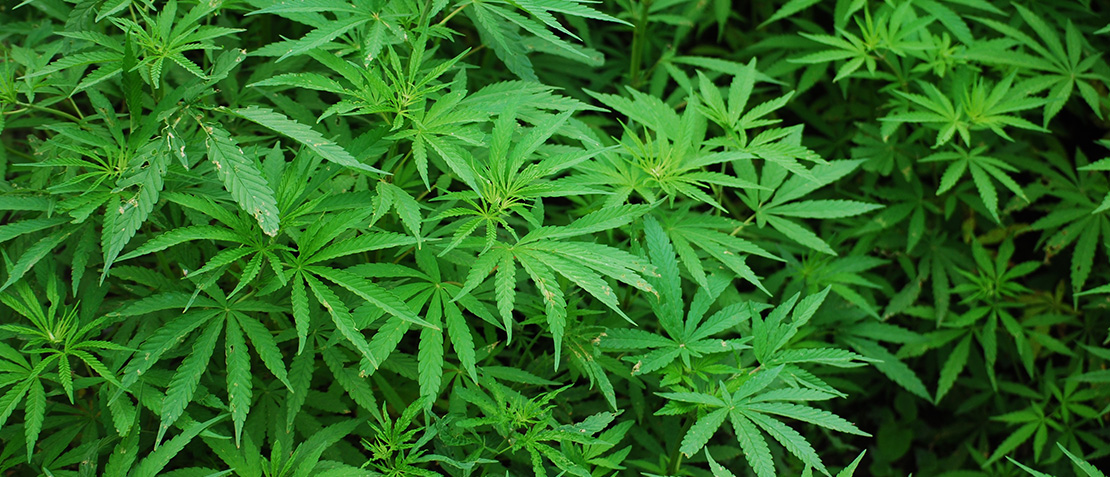October 20, 2023
As a brief aside from the business of cannabis, we thought it would be a good idea to educate those of you that are interested in growing your own cannabis. Minnesota’s personal use law is currently in force, so even though you may not be able to buy cannabis products yet, you can grow your own flower and make them yourself.
There are some restrictions in terms of what you can and cannot do when it comes to homegrown cannabis (and I am including hemp in the word “cannabis” for purposes of this post). The main statute concerning homegrown cannabis is Minn. Stat. § 342.09. It allows a person to grow up to eight cannabis plants (with only for being mature, flowering plants) at a single residence (including the yard). While the statute prohibits the extraction of cannabis concentrate by use of volatile solvents, there are a variety of other methods of extraction, including, using hair straighteners or irons, using water and/or ice, or using sieves to separate “kief” from plant matter. Before trying any of these methods, however, you should do your own homework by reviewing the processes on a number of websites.
It authorizes a person 21 years of age or older to:
- Use, possess, and transport cannabis paraphernalia. The phrase “cannabis paraphernalia” means all equipment, products, and materials that are used primarily in manufacturing cannabis products, ingesting or inhaling cannabis products, and testing cannabis products for strength, effectiveness, and purity. While this may not sound like much, possession of “drug paraphernalia” of all kinds (including cannabis paraphernalia) was previously a petty misdemeanor under Minnesota law.
- Possess or transport up to two ounces of cannabis flower in a public place.
- Possess up to two pounds of cannabis flower in a private residence.
- Possess or transport up to eight grams of cannabis concentrate.
- Possess or transport edible cannabis products with a combined total of up to 800 milligrams of THC.
- Give – for no ‘remuneration’ – to persons 21 years of age and older up to: (a) two ounces of cannabis flower; (b) eight grams or less of adult-use cannabis concentrate; or (c) an edible cannabis product with up to 800 milligrams of THC.
The question that has come up the most for us, however, is where cannabis flower and cannabis products can be used. You can use cannabis flower and products:
- In a private residence (including a yard);
- On private property not generally accessible by the public, unless prohibited from doing so by the owner of the property; or
- On the premises of an establishment or event licensed to permit on-site consumption.
Public consumption is still technically not permitted.
When it comes to restrictions placed on homegrown cannabis flower and products, an individual may not:
- Use, possess, or transport cannabis flower or products if the individual is under 21 years of age except where the person under 21 years of age is a medical cannabis registered patient.
- Use cannabis flower or products in a vehicle.
- Use cannabis flower or products in a manner that involves inhalation of smoke, aerosol, or vapor where smoking is prohibited by Minn. Stat. § 144.414. The prohibited locations under this statute include, public places, places of employment, public transportation, public meetings, daycare premises during hours of operation (and if used outside of hours of operation, the individual must disclose that to the parents or guardians of the children attending that daycare), health care facilities, and clinics.
- Use or possess cannabis flower or products in a public or charter school.
- Use or possess cannabis flower or products in a state correctional facility.
- Operate a motor vehicle while under the influence of cannabis flower or products.
- Give away cannabis flower or products to persons under 21 years of age.
- Give away cannabis flower or products “as a sample or promotional gift if the giver is in the business of selling goods or services.
- Smoke or vaporize cannabis flower or products where the smoke, aerosol, or vapor would be inhaled by a minor.
- Sell cannabis flower or products.
- Import hemp-derived edibles manufactured outside of Minnesota with the intent to sell the edibles to consumers within the state of Minnesota or to any other person or business that intends to sell the edibles to consumers in Minnesota without a license that authorizes such importation.
It is important to pay attention to – and follow – these rules and restrictions. Violations can result in serious penalties, including criminal penalties, and fines of up to three times the retail market value of the offending products or more (all the way up to $1,000,000).
The image contained in this post is a close-up of our first homegrown.
